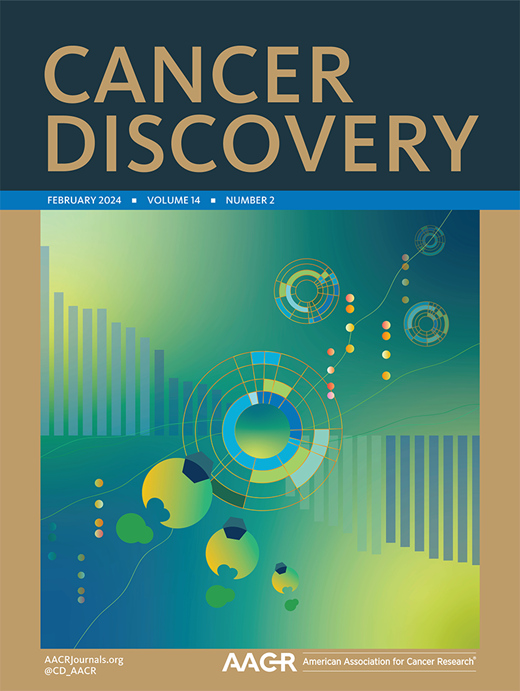Early detection of ovarian cancer using cell-free DNA fragmentomes and protein biomarkers
IF 29.7
1区 医学
Q1 ONCOLOGY
引用次数: 0
Abstract
Ovarian cancer is a leading cause of death for women worldwide in part due to ineffective screening methods. In this study, we used whole-genome cell-free DNA (cfDNA) fragmentome and protein biomarker (CA-125 and HE4) analyses to evaluate 591 women with ovarian cancer, benign adnexal masses, or without ovarian lesions. Using a machine learning model with the combined features, we detected ovarian cancer with specificity >99% and sensitivity of 72%, 69%, 87%, and 100% for stages I–IV, respectively. At the same specificity, CA-125 alone detected 34%, 62%, 63%, and 100% of ovarian cancers for stages I–IV. Our approach differentiated benign masses from ovarian cancers with high accuracy (AUC=0.88, 95% CI=0.83-0.92). These results were validated in an independent population. These findings show that integrated cfDNA fragmentome and protein analyses detect ovarian cancers with high performance, enabling a new accessible approach for noninvasive ovarian cancer screening and diagnostic evaluation.利用无细胞 DNA 片段组和蛋白质生物标记物早期检测卵巢癌
卵巢癌是全球妇女死亡的主要原因之一,部分原因是筛查方法无效。在这项研究中,我们利用全基因组无细胞DNA(cfDNA)片段组和蛋白质生物标志物(CA-125和HE4)分析,对591名患有卵巢癌、良性附件肿块或无卵巢病变的妇女进行了评估。利用具有综合特征的机器学习模型,我们检测出卵巢癌的特异性>99%,对I-IV期的敏感性分别为72%、69%、87%和100%。在相同的特异性下,单独使用 CA-125 检测 I-IV 期卵巢癌的特异性分别为 34%、62%、63% 和 100%。我们的方法能准确区分良性肿块和卵巢癌(AUC=0.88,95% CI=0.83-0.92)。这些结果在一个独立人群中得到了验证。这些研究结果表明,cfDNA片段组和蛋白质综合分析能高效检测卵巢癌,为无创卵巢癌筛查和诊断评估提供了一种新的便捷方法。
本文章由计算机程序翻译,如有差异,请以英文原文为准。
求助全文
约1分钟内获得全文
求助全文
来源期刊

Cancer discovery
ONCOLOGY-
CiteScore
22.90
自引率
1.40%
发文量
838
审稿时长
6-12 weeks
期刊介绍:
Cancer Discovery publishes high-impact, peer-reviewed articles detailing significant advances in both research and clinical trials. Serving as a premier cancer information resource, the journal also features Review Articles, Perspectives, Commentaries, News stories, and Research Watch summaries to keep readers abreast of the latest findings in the field. Covering a wide range of topics, from laboratory research to clinical trials and epidemiologic studies, Cancer Discovery spans the entire spectrum of cancer research and medicine.
 求助内容:
求助内容: 应助结果提醒方式:
应助结果提醒方式:


